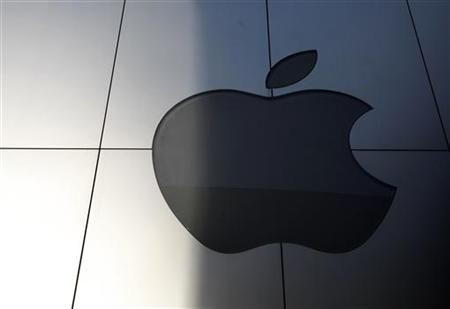Apple Shares Drop 4 Percent After Earnings Miss

Apple shares opened down about 4.3 percent after the world's most valuable company reported fourth-quarter results that narrowly missed analyst estimates.
At midday Wednesday, shares were at $405.82, down $16.42, still down 4 percent. Their record was $426.70, set last month.
On Tuesday, Apple reported full-year revenue of $108 billion, firmly establishing it as one of the world's top technology companies. Fourth quarter earnings of $6.2 billion on revenue of $28.3 billion fell slightly under estimates.
The results place Apple, already the world's most valuable company, in a technology club whose only other current member is Hewlett-Packard. IBM, with 2010 revenue of $99.9 billion, will likely finish 2011 there, too.
Cupertino, Calif.-based Apple announced earnings for the first time since Chairman Steve Jobs died Oct. 5. The results didn't include anything for shipments of the iPhone 4S because they only began last week,
Still, CEO Tim Cook said response to the new line has been fantastic, giving the company strong momentum going into the holiday season. During an investor call Tuesday, CFO Peter Oppenheimer acknowledged sales of old iPhone 4 sales dipped on new product speculation but then issued a forecast for current quarter revenue as high as $37 billion, another record.
Apple reported fourth quarter earnings of $7.05 a share, compared with $4.64 a year ago. Revenue was $28.27 billion compared with $20.3 billion. Analysts had predicted earnings around $7.31 a share.
Apple shares fell about 6 percent Tuesday after the results were announced. They closed at $422.24, giving the company a market capitalization of $391.5 billion, keeping it the world's most valuable company.
Here are some items to note in the financial release:
Apple's fourth-quarter gross margin, or net profit left after expenses, rose to 40.3 percent up from as 39.1 percent last quarter.
Maynard Um, analyst with UBS, expected gross margins of at least 40.4 percent. Under Jobs, Apple's policy was generally to charge more for products that were better-designed and offered more than standard technology items.
Apple said it sold 17.1 million iPhone 4s, a 21 percent jump over last year, which indicates customers held off buying the old models.
Apple has already reported selling more than 4 million new iPhone 4S units. CEO Cook acknowledged sales of the old models the reduction happened largely in te back half of the quarter as the speculation hit extreme highs about the new model.
Analysts like Um at UBS had estimate iPhone shipments were about 21.5 million, nearly triple the third quarter amount.
Demand for the iPad 2 is enormous, and the last quarter saw HP lay an egg with its TouchPad and Research in Motion's paltry 400,000 BlackBerry PlayBook tablet shipments. Apple holds about a 75 percent market share, which it looks likely to retain ahed.
The company sold 11.12 million iPads last quarter, a new record. By contrast, Apple sold 9.25 million iPads in the third quarter and only 4.2 million in the year-ago quarter.
Given expected higher sales and lower prices for many of the chips used in new products, if not the ARM 5 processor in the latest ones, Apple's cash pile rose to $81.5 billion on Sept. 30.
The money could be used for acquisitions, which Apple has done judiciously; Siri, the personal assistant in the iPhone 4S, came via acquisition. As well, Apple could announce a share buyback or a first dividend at a later date.
We're not going to do silly things with the cash, Cook said, adding he doesn't hold a religious belief about dividends or buybacks.
Many technology giants like HP and IBM pay out healthy dividends. Microsoft paid out a special $30 billion dividend in 2004, set share buybacks and promised to spend $75 billion to enhance shareholder value.
Apple shares have already gained 30.3 percent this year and 411 percent since 2001.
Key technology rivals like IBM, Dell and HP all derive most revenue from outside the U.S., with especially high demand in the developing countries including China.
Last quarter, China accounted for 16 percent of revenue, but that was before the new Apple store opened in Shanghai. Apple reported Asia-Pacific revenue surged 139 percent.
© Copyright IBTimes 2024. All rights reserved.





















